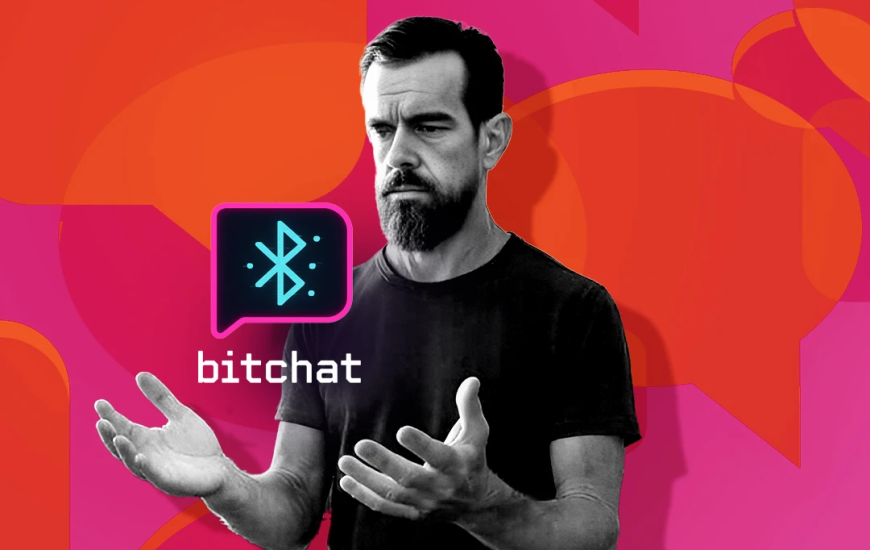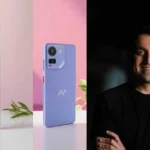Imagine chatting with friends without Wi-Fi, cellular data, phone numbers—or even a username. That’s exactly what Bitchat offers. Created by Jack Dorsey, co-founder of Twitter and CEO of Block, Bitchat is an experimental, open-source messaging app based on Bluetooth Low Energy (BLE) mesh networking. It enables truly offline, encrypted communication in situations ranging from concerts and protest rallies to natural disasters—and even everyday meetups—without relying on infrastructure.
Table of Contents
1. What is Bitchat?
Bitchat is a decentralized peer-to-peer messaging app launched in July 2025 by Jack Dorsey via a “weekend project” challenge using his AI coding tool “Goose”. Rather than use cell towers or Wi-Fi, Bitchat uses Bluetooth to create a mesh network, allowing phones to relay messages over distances often exceeding 300 meters . There are no phone numbers, usernames, or centralized servers—just secure, encrypted communication directly between devices .
2. Why It Matters
a) Internet-Free Communication
In areas with poor connectivity, during protests, or in remote zones, Bitchat ensures that users can still communicate.
b) Privacy & Encryption
The app uses end-to-end encryption (Curve25519 and AES-GCM), no central data storage, no tracking, and even supports a “panic mode” that wipes all data.
c) Resilient Peer-to-Peer Architecture
Each device becomes a node, forwarding messages hop-by-hop across the mesh—creating a robust, self-healing network.
d) No Registration, No Metadata
You can use Bitchat anonymously—no accounts, no phone numbers, no centralized logs—and messages default to ephemeral unless saved by users.
3. How Bitchat Works
BLE Mesh Networking
Bluetooth Low Energy mesh allows direct connections up to around 30 meters. From there, messages hop across intermediate phones to reach destinations over 300 meters.
Store-and-Forward
Unreachable recipients’ messages are held and relayed once they join the mesh—ensuring delivery without internet access.
Future Enhancements
Future updates aim to include Wi-Fi Direct support to boost range and data speed.
4. Features at a Glance
Encryption: Private & group chats secured end-to-end.
Anonymous Use: No login, phone numbers, or data collection.
Channels: Named “rooms” (e.g., #general) with optional passwords.
Private Messages: Direct chat using auto-generated IDs.
Panic Mode: Triple tap to erase all message history instantly.
Ephemeral Defaults: Messages disappear unless saved.
Library Support: Available via iOS TestFlight and Android APK from GitHub.
Whitepaper & Open-Source: Complete protocol and code visible on GitHub.
5. Use Cases
Disaster Zones
When Internet, cell, and satellite networks fail, Bitchat remains functional.
Protests & Censorship-Effected Areas
Bluetooth mesh resists shutdowns and tracing—remember FireChat in Hong Kong? Bitchat builds on that legacy with encryption.
Events & Festivals
Concerts often suffer poor coverage—Bitchat helps friends stay connected .
Outdoor & Remote Travel
Ideal in wilderness areas, as a backup when traditional comms fail.
Casual & Local Chats
From dorms to rooftops, chat where you’d usually just shout across halls.
6. Technical Backbone
Encryption: Curve25519 key exchange + AES-GCM symmetric encryption.
Transport: BLE mesh with managed flooding, TTL-based message forwarding.
Privacy-first: No metadata, data storage on-device, panic mode wipes data.
Ephemeral Identity: Auto-generated nicknames like “@anon1234”.
Open-Source Protocol: Entire app and protocol public on GitHub.
7. Current Status & Limitations
Beta Testing: iOS TestFlight slot filled (10,000 limit); Android APK available.
Security Audits Pending: No independent audits yet; impersonation vulnerabilities noted.
Limited Range: Depends on nearby devices; range improves with mesh density.
Feature Gaps: Prioritizes privacy, may lack mainstream app comfort & visual polish.
Push Notifications: No internet-driven notifications; relies on BLE presence.
8. Community Feedback
Reddit threads highlight excitement:
“Pretty sure … you could just send a message without turning off Aeroplane mode…”
Privacy subreddit warns:
“I am not aware this app has had independent audits. Be cautious of the secure claims.”
9. The Bitcoin Connection
Jack Dorsey describes Bitchat as similar in ideology to Bitcoin—cutting out centralized control, returning power to users. Remarkably, the app even supports offline Bitcoin transactions, using Bitchat as a store-and-forward layer until recipients regain internet access to broadcast them.
10. What Lies Ahead
Wi-Fi Direct Integration: Planned expansion beyond BLE.
Security Enhancements: Independent audits, impersonation fixes.
Wider Beta Testing: More TestFlight slots, Google Play availability.
Expanded Use Cases: Emergency services, NGOs in remote areas, online-free zones.
Feature Upgrades: UI tweaks, push notifications, file/image sharing.
11. Challenges to Adoption
Critical mass needed: Without enough local users, the mesh won’t form.
Battery use: BLE is efficient, but constant connectivity drains battery.
No global reach: Not a replacement for WhatsApp or Signal.
App distribution: Installing from unknown sources requires tech-savvy.
Conclusion
Bitchat is a bold experiment in decentralized, resilient, and private communication. It addresses real-world needs—from protests and emergencies to offline events and travel—providing messaging without dependency on infrastructure or personal identifiers.
By combining vibe-coded weekend ingenuity, AI-assisted development, open-source ethos, and the Bitcoin-aligned mission of freedom, Bitchat is more than a utility—it’s a statement in digital autonomy.
As the app evolves—adding Wi-Fi mesh, security audits, and mainstream fixes—its success will hinge on user adoption, trust, and killer use cases. Even if it never becomes a WhatsApp competitor, Bitchat represents a glimpse of a connectivity future beyond centralized networks.
FAQs Bitchat by Jack Dorsey
Q1. Is Bitchat available now?
A1. It’s currently in beta—iOS TestFlight is full, but Android APK is on GitHub.
Q2. Why is it called Bitchat?
A2. A portmanteau of “bit” and “chat”—emphasizing decentralized messaging over tech .
Q3. Does it require internet?
A3. No—it runs completely offline, using Bluetooth mesh networks .
Q4. How secure is it?
A4. End-to-end encryption (Curve25519/AES-GCM); no central servers. But still under internal review—external audit pending .
Q5. How far can messages travel?
A5. Mesh relays extend range well beyond 300 meters, depending on nodes .
Q6. Can I use it for emergencies?
A6. Yes—it’s ideal when internet is down, such as in crises, protests, or remote zones .
Q7. Can I send satellite messages?
A7. No—it’s local only, not global.
Q8. Does anyone create an account?
A8. No—identity is anonymous and ephemeral .
Q9. What platforms is it on?
A9. Available on iOS (TestFlight) and Android APK, with macOS support in progress .
Q10. Will BLE kill my battery?
A10. BLE uses low energy, but extended use will have measurable battery impact.












